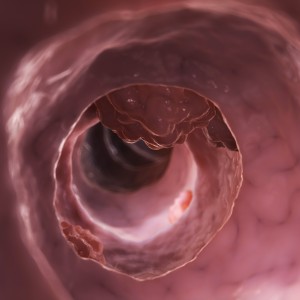 A new study recently published in the journal JAMA Oncology revealed the frequency of mutations in the germline TP53 gene in patients diagnosed with early-onset colorectal cancer. The study is entitled “Germline TP53 Mutations in Patients With Early-Onset Colorectal Cancer in the Colon Cancer Family Registry.”
A new study recently published in the journal JAMA Oncology revealed the frequency of mutations in the germline TP53 gene in patients diagnosed with early-onset colorectal cancer. The study is entitled “Germline TP53 Mutations in Patients With Early-Onset Colorectal Cancer in the Colon Cancer Family Registry.”
According to the Centers for Disease Control and Prevention, among the cancers affecting both genders, colorectal cancer is considered the second leading cause of cancer death in the United States. Colon cancers correspond to malignant tumors in the inner walls of the large intestine and usually develop from polyps (abnormal growths). Screening and polyp removal can prevent the disease.
Li-Fraumeni syndrome is an inherited cancer syndrome that is usually caused by mutations in the germline TP53. Patients with this syndrome typically develop multiple early-onset cancers, such as brain tumors, leukemia and breast carcinomas, and were found to have a markedly increased risk for early-onset colorectal cancers. TP53 testing is currently performed as a part of a multigene next-generation sequencing analysis to assess hereditary cancer risk. Since TP53 mutations have also been linked to early-onset colorectal cancers, it is necessary to better understand how this gene contributes to this type of cancer in individuals and families that do not meet the clinical criteria of the Li-Fraumeni syndrome.
The aim of this study was to determine the proportion of early-onset colorectal cancer patients who are carriers of germline TP53 mutations. For this purpose, researchers recruited patients from the Colon Cancer Family Registry (CCFR) between 1998 and 2007, considering individuals diagnosed with colorectal cancer at the age of 40 or younger and who lacked a known hereditary cancer syndrome. The patients’ germline TP53 gene was sequenced.
Researchers found that in this particular cohort of 457 eligible colorectal cancer patients (median age at diagnosis of 36 years), 6 of the individuals (1.3%) had germline TP53 gene mutations although none of the patients met the clinical criteria for Li-Fraumeni syndrome. Four of the TP53 alterations found had been previously described in patients with clinical features of Li-Fraumeni syndrome, while the other two were novel TP53 mutations.
“With modern techniques for comprehensively genotyping cancer patients, interpreting such germline results will undoubtedly be a prominent challenge in the counseling and management of at-risk individuals,” concluded the research team. The team believes that the cancer risk associated with the TP53 mutation carriers might differ between patients with early-onset colorectal cancer and patients who have a Li-Fraumeni syndrome family history.


